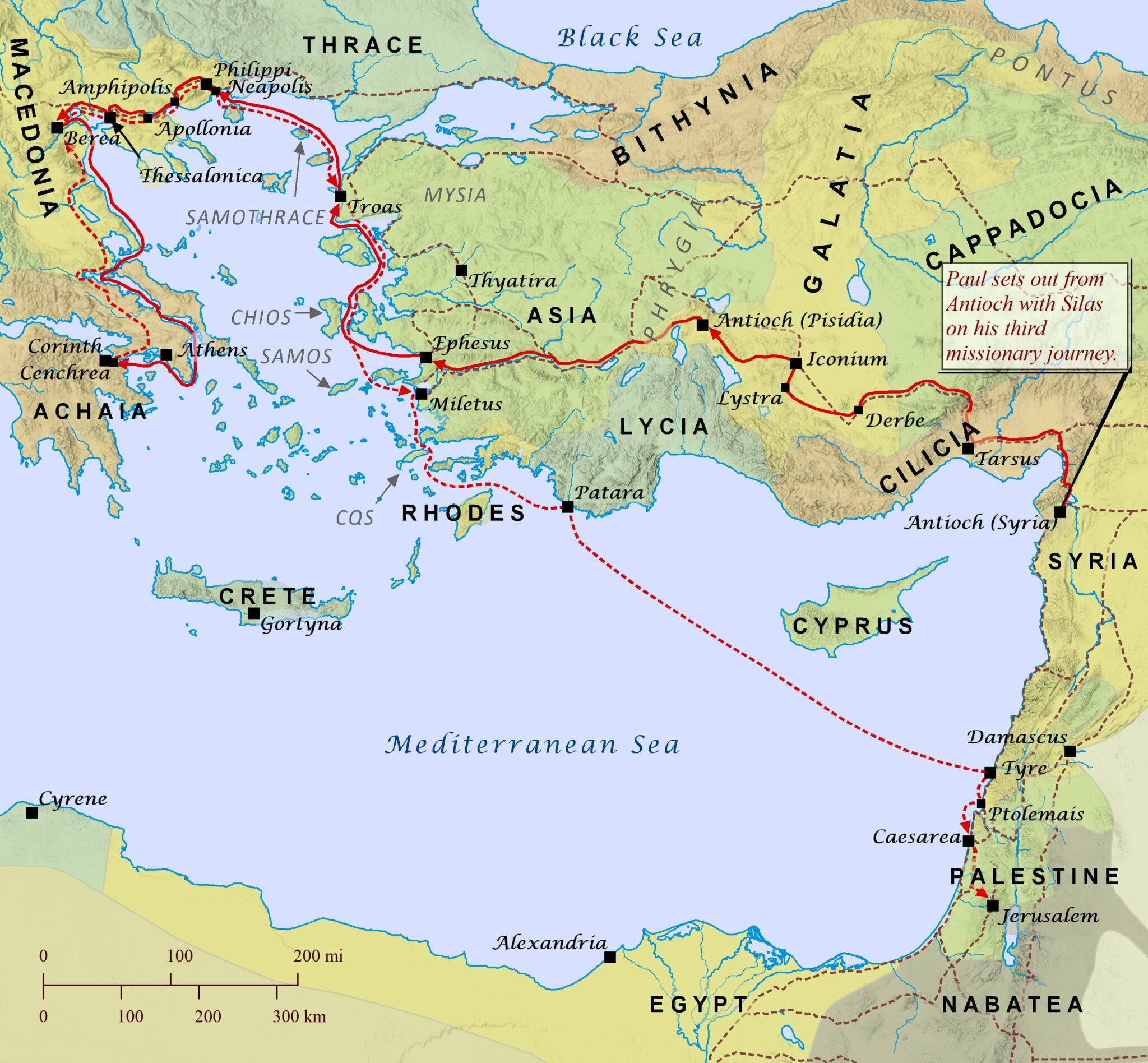Similarly, the competing Jewish “authorities” argue: “If my untruth reveals God’s truth, how can God judge that as sin?”
Here, Paul asks another question that no doubt the Jewish “authorities” are asking as a part of contesting Paul’s message of grace and faith: But if through my lie the truth of God abounded to His glory, why am I also still being judged as a sinner (v 7)?
Paul teaches clearly that Jesus paid the price for the sins of the world—every sin (Colossians 2:14). We cannot out-sin the grace of God (Romans 5:20). Our relationship as children in the family of God is received through simple faith in the work of Jesus on the cross (John 3:14-15).
The competing Jewish “authorities” resist this notion. They believe we cannot be made righteous simply through faith. They believe it is necessary to also be circumcised and follow the Jewish law (Acts 15:5).
Whether or not the competing Jewish “authorities” are believers in Jesus as the Messiah, they are enemies of Paul’s message of grace. When confronted with opponents of his gospel of grace in Acts 15:1, Paul’s teaching precipitated the Great Council in Jerusalem. The decisive statement of that council was spoken by the Apostle Peter affirming Paul’s position:
“And God, who knows the heart, testified to them [the Gentiles] giving them [the Gentiles] the Holy Spirit, just as He also did to us [Jews]; and He made no distinction between us [Jews] and them [Gentiles], cleansing their hearts by faith. Now therefore why do you put God to the test by placing upon the neck of the disciples [believing Gentiles] a yoke which neither our fathers nor we have been able to bear [keeping the law]? But we believe that we [Jews] are saved through the grace of the Lord Jesus, in the same way as they [Gentiles] also are.”
(Acts 15:8–11)
Paul’s writing of this letter (epistle) to the Romans was the same sort of action—a direct effort to confront wrong teaching. In writing this letter, he was likely supporting the ministry of his fellow workers Aquila and Priscilla (Romans 16:3; Acts 18:2).
Acts was written by Luke, who was a traveling companion of Paul. A major reason Luke wrote Acts, and included this statement of Peter in Acts 15, was to bolster Paul’s authority as a true Apostle, and to demonstrate the authority of the main (Jewish) leaders of the early church supporting Paul’s teaching that Jews and Gentiles are saved the exact same way, by the grace of the Lord Jesus. It is likely that Luke was supporting Paul’s authority by writing Luke and Acts, while Paul was supporting the ministry of Priscilla and Aquila in the writing of Romans. In each case, the writing would have been precipitated by opposition from the competing Jewish “authorities.” This once again shows how what some meant for evil God turned to good (Genesis 50:20).
Biblical Text
7 But if through my lie the truth of God abounded to His glory, why am I also still being judged as a sinner?
Check out our other commentaries:
-
Romans 8:17-18 meaning
Christians are children of God, and from Him every believer unconditionally inherits being justified in His sight and the promise of one day being with...... -
Luke 10:36-37 meaning
Jesus asks the religious lawyer which of the three travelers was a neighbor to the injured man. The lawyer responds, “The one who showed him...... -
Matthew 26:20-25 meaning
Jesus identifies Judas as His betrayer. The Passover meal begins. During the meal with His disciples Jesus makes the startling announcement that that one of...... -
Psalm 8:6-9 meaning
All of God’s creation was given to Man to rule over, from the animals on land to the fish in the sea. David concludes his...... -
Hebrews 4:14-16 meaning
Our high priest is sympathetic and available to help us persevere in our faith. We can have confidence to approach God because He is for......



